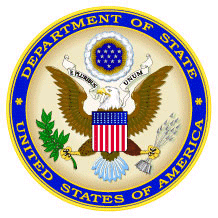
 |
Marriage of U.S. Citizens in Iraq |
Who May Perform Marriages in Iraq?
American diplomatic and consular offices are NOT permitted to perform marriages (Title 22, Code of Federal Regulations 52.1). Marriages abroad are almost always performed by local (foreign) civil or religious officials.As a rule, marriages are not performed in the premises of an American embassy or consulate. The validity of marriages abroad is not dependent upon the presence of an American diplomatic or consular officer, but upon adherence to laws of the country where the marriage is performed. Consular officers may authenticate foreign marriage documents. The fee for authentication of a document is $ 32.00.
Validity of Marriages Abroad
In general, marriages which are legally performed and valid abroad are also legally valid in the United States. Inquiries regarding the validity of marriage abroad should be directed to the attorney general of the state in the United States where the parties to the marriage live.
Iraqi Laws and Procedures
The Iraqi Social Status (civil) Law follows the Islamic Sharia (Islamic legislation). Under Islamic law, an Iraqi Muslim female may not marry a non Muslim male. However an Iraqi Muslim male may marry a Muslim, Christian, or Jewish female.
Marriage of a Muslim to a Non-Muslim
Muslim women in Iraq are legally prohibited from marrying a non-Muslim. Therefore, the non-Muslim male must convert his religion to Islam and file a petition with the Social Status Court to declare that he is Muslim. Muslim men in Iraq are permitted to marry non-Muslim women if they are Christian or Jewish only. If the woman belongs to any other religion, she must convert to Islam.
Marriage Procedures
In all cases the bride and groom must do the following in order to obtain a marriage certificate:
Immigration of Future Spouses to the United States
The U.S Immigration and Nationality Act, as amended, provides U.S. citizens with two options for facilitating the immigration of future spouses to the U.S.: the K-1 fiancé visa and the alien-spouse immigrant visa. Petitions for fiances can be filed with the Bureau of Citizenship and Immigration Service in the Department of Homeland Security (BCIS, formerly known as INS) in the United States. Petitions for the spouse of an American citizen can be filed with BCIS in the United States or at certain American embassies or consulates overseas. BCIS’ website is http://www.uscis.gov. Please contact BCIS for more information on filing petitions and on the current waiting period for petitions filed at the service center nearest to your residence in the United States. Detailed information on the visa process can also be found at www.unitedstatesvisas.gov.Marriage in the United States: Fiancé Visa
U.S. citizens may file an I-129F petition with BCIS for the issuance of a K-1 fiancé visa to an alien fiance. Once the petition is approved, the alien fiance must apply in person for a visa at a U.S. Embassy or consulate. A U.S. citizen exercising this option must remain unmarried until the arrival of the fiance in the U.S., and the wedding must take place within three months of the fiancé’s arrival if he/she is to remain in status. Also, the alien and U.S. citizen must have met personally at least once in the two years before the petition was filed. Please note that legal permanent residents may not file petitions for fiance visas.Marriage Abroad: Alien-Spouse Visa
If a U.S. citizen marries an alien abroad, an I-130 petition must be filed after the marriage to begin the immigration process for the alien spouse. This can be filed either with BCIS in the U.S, or, under certain circumstances, at U.S. Embassies or Consulates abroad. U.S. Embassies and Consulates have differing policies on approving I-130s and should be contacted directly about the availability of this service. Legal permanent residents may also file an I-130 on behalf of their spouse. However, there may be a waiting period before the visa become available. Many posts have their own web pages which include this information and which can be accessed through the U.S. Embassy and Consulate links page at www.travel.state.gov.I-130 and Fiance Petitions Cannot be Filed in Iraq.